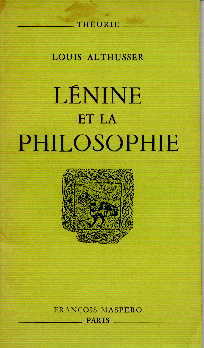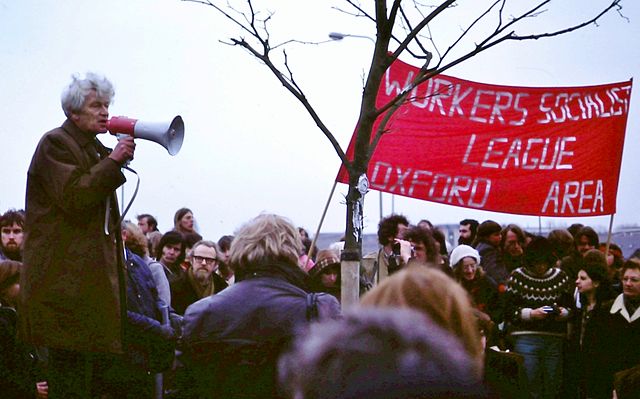By Michel Lee
Louis Pierre Althusser (1918-1990) was a French Marxist philosopher who wrote in the wake of Nikita Khrushchev’s denunciation of Joseph Stalin and the Soviet Union’s brutal suppression of the Hungarian revolution of 1956. These two events led many western Communist leaders and philosophers to question the tenets of the Marxism and, while many elected for a reading of Marx that sought to recover his humanist roots, Althusser opted for a provocative structuralist interpretation that downplayed the role of human agency in history.
One central concept in Althusser’s writings is ideology. Early on, Althusser had argued that ideology is a “system of representations” governed by rules that serve political ends. Ideology, in Althusser’s view at this time, was a matter of the unconscious, inescapable even by the dominant class. But with his publication of Lenin and Philosophy and Other Essays in 1970, Althusser drastically changed his position on ideology. While he still viewed ideology as inescapable, he also came to argue that it is realized in real actions and behaviors.
Within this framework, Althusser introduces the concept of interpellation, otherwise known as “hailing.” Ideologies “call out” or “hail” people and offer a particular identity, which they accept as “natural” or “obvious.” In this way, the dominant class exerts a power over individuals that is quite different from abject force. According to Althusser, individuals are interpellated from the day that they are born—and perhaps even before, since parents and others conceive of the role and identity that their child will assume.
With this concept of interpellation, Althusser implies that there is no inherent meaning in the individual. There are no individuals: only subjects, who come into being when they are hailed or interpellated by ideology. Instead, the subject exists only as he or she is recognized in a specific way that has a social structure as its referent. The subject is thus preceded by social forces, or “always-already interpellated.”
This act of hailing the subject is effected by what Althusser terms “Ideological State Apparatuses” (ISAs). While Repressive State Apparatuses (RSAs), such as the police force and military, function primarily by repression, ISAs are churches, schools, families, religion, and other entities in the private domain and function primarily by ideology. RSAs show themselves rarely; ISAs are commonly accepted features of a society. ISAs reinforce the hegemonic rule of the dominant class by replicating its dominant ideology. According to Althusser, schools are a particularly important ISA because teachers hold captive the undivided attention of their students in what is supposedly a neutral environment, thus rendering the content taught “obvious.”
Other scholars, namely British historian E.P. Thompson, have heavily criticized Althusser for his allegedly impersonal structuralist approach to Marx. Yet however one assesses his views, his concepts of interpellation and Ideological State Apparatuses perhaps best exemplify his structuralist reading of Marx and his work in systematizing Marx into a philosophical framework.

You may also like:
Andrew Straw’s discussion of Bolshevism and his review of Trotsky: Downfall of a Revolutionary by Bertrand M. Patenaude (2009)






